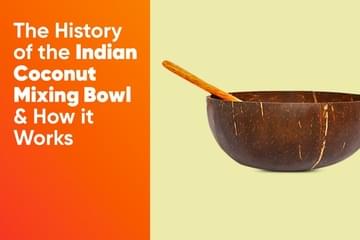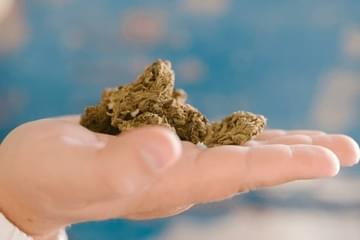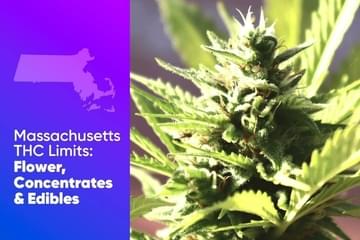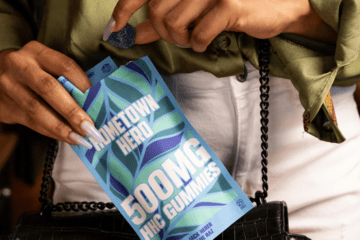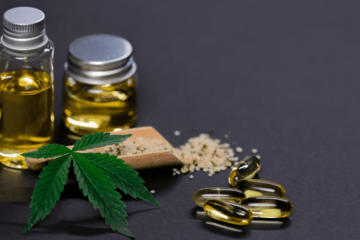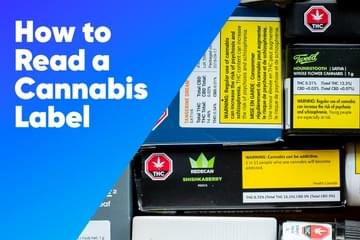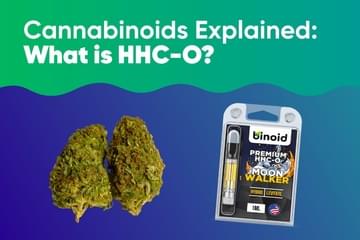
Can You Overdose on Cannabis?
Published on 7/28/20
Updated: Mar 9, 2022
It's probably fair to say that legal weed is having a moment here in the U.S. Marijuana is now more socially accepted than ever before, nearly half of a million workers are employed by the legal weed industry throughout the U.S., sales figures for legal weed boomed even in the midst of a global pandemic and economic depression, and 18 states and U.S. territories have legalized recreationally with another 37 creating some type of medical program. Despite all of that movement in the right direction, however, there's still a lot of misconceptions and misunderstandings floating around about cannabis and cannabis-infused products.
For example, War on Drugs era myths and misinformation about weed as a "gateway drug" are still spouted by many, despite being disproved by research for nearly twenty years now. Due to all of that misinformation and pseudoscience, there are still a lot of questions that people don't know the answers to, and plenty of people wonder about the seriousness of the drug as medicine. One of the most common misconceptions and questions that people still have about cannabis is one that's been floated for literally decades now - can you overdose on marijuana? Thankfully, we here at Where's Weed are around to dispel this myth, breaking down for you how and why it's pretty much impossible to OD on marijuana, digging deep into the science behind it, and telling you step-by-step exactly what to do when you might have dosed yourself with a little bit more cannabis than you were planning to! Let's get right into it!
Marijuana Classification
First things first, we need to break down and go into detail about where some of these myths and misconceptions about cannabis come from. The key reason why more detailed and comprehensive research has yet to come out about cannabis is due to its outdated Schedule 1 classification.
Marijuana is still listed as a Schedule I drug by the federal government, putting it on par with serious, hard drugs like LSD and heroin in the eyes of the federal government. That outdated and often racist classification means that they officially believe it to have no "accepted medical use and a high potential for abuse." Because there are currently 37 states with some sort of legalized medical marijuana program, it's crystal clear that the federal government's treatment of weed is clearly unaligned with the majority of state-level legislation.
This outdated classification system means that, in the eyes of the federal government, a cannabis-infused brownie is more dangerous and addictive than opiates, a form of drug that kills more than 92,000 (and rising)per year in the U.S., has proven to be incredibly addictive and prone to misuse, and the fed itself has called this trend of addiction to opioids an epidemic. When you compare that with addiction and OD statistics for cannabis, however, you'll likely end up wondering how opioids are in Schedule 2 while cannabis remains Schedule 1.
Can You Overdose on Weed?

Technically, yes you can overdose on cannabis or cannabinoid-infused products. The only difference is that, unlike for a drug like cocaine, heroine, or opioids, a cannabis overdose being deadly is pretty much impossible from the drug alone. It's a common misconception that overdosing has to be lethal. This might be because other Schedule I drugs do lead to mass fatalities.
In 2018, there were 67,367 drug overdose deaths in the United States. Opioids, a Schedule I drug, were responsible for 46,802 of those deaths. According to the CDC, however, "a fatal overdose is unlikely" for marijuana use. The National Cancer Institute has explained that this is largely because cannabinoid receptors (the part of the brain marijuana chemicals interact with) do not control breathing. Therefore, the only deaths reportedly connected to marijuana have coincided with other complications, drug combinations, or severe bodily injury like in a high fall or car crash. This doesn't mean a marijuana overdose is impossible, however - it just means you won't die from it.
According to the American Addiction Centers, "an overdose represents a pathologic level of drug toxicity - at such a magnitude that it overwhelms normal physiological functioning." While scientists and medical professionals continue to argue whether a fatal weed overdose is even possible, too much marijuana at once can cause negative reactions. Because of this, you can technically overdose on marijuana but it will likely not result in serious injury or death.
Cannabis Overdose Symptoms

Since dosing cannabis products like homemade edibles can be so difficult at times, it's not uncommon for folks to take a little bit more THC into their system than they wanted to. Technically speaking, this is an OD for cannabis.
Cannabis overconsumption can lead to some very uncomfortable side effects. The most common of these adverse reactions are:
- Intense drowsiness
- Persistent confusion
- Extreme anxiety and paranoia
- Nausea and vomiting
- Occasional hallucinations or delusions
- Increased heart rate and blood pressure
Because marijuana mixed with other drugs can intensify reactions (and potentially prove fatal depending on the substances and amount consumed), it's highly recommended to never ingest weed or cannabis-infused products alongside other drugs or intoxicants. Additionally, if you're interested in medical marijuana, or if you take other prescribed drugs and want to try marijuana, we highly recommend consulting a medical professional first.
How Much Cannabis Does It Take To Overdose?
How much weed to overdose depends on several factors, including body weight, sex, other medications, and tolerance levels, along with a laundry list of other potential factors. It also depends on how you ingest marijuana (edibles vs smoking) and the THC concentration of that strain or product you're using. As a general rule, higher levels of THC mean you'll get higher quicker - so, you physically have to smoke less before getting way too high.
THC vs CBD

There are two primary chemical compounds found in cannabis: THC and CBD. Since THC is what produces the "high" associated with marijuana, it's more likely to cause intense side effects if consumed in large doses. So, if you've been wondering if you can OD on weed, what you're also asking is, "can you overdose on THC." As discussed above, a THC overdose won't lead to death, but it's definitely possible to reach a point you don't want to get to - it is what causes most of the adverse symptoms of a marijuana overdose.
It's logical to wonder, "if you can overdose on THC, can you overdose on CBD?" CBD (with or without THC) can also cause unwanted side effects if taken in large amounts, but it has also never been proven fatal in large quantities. In a 2001 study conducted by Current Drug Safety, it was found that amounts of 1,500 mg per day didn't have any significant side effects, even when tested over the course of months. If taken in larger doses, CBD may cause minor side effects, such as drowsiness, dry mouth, and lower blood pressure, but it is far less likely to cause adverse reactions than THC.
It's worth noting, however, that the entourage effect is likely to play a part here. The entourage effect is a well-known effect of different cannabinoids interacting in a way that amplifies the high you're feeling. Basically, you'll get higher if you smoke a cannabis strain containing THC and CBD than you would with a strain that just has THC in it. So, if you're considering dosing yourself with cannabis, make sure to take the entourage effect into consideration when you're doing the math on how much weed to overdose!
What to Do When You're Too High

If you've accidentally crossed that line from "high" into "too high," don't panic. It's not the end of the world, despite it feeling like it very well could be. After all, we've all taken a little bit too much of an edible, tincture, or some other type of cannabis-based product and found yourself blasted off into space instead of being pleasantly buzzed like you planned to be. Thankfully, there are a couple of things you can do to decrease the effects of getting too high:
- Drink lots of water and eat a big meal
- Take a nap
- Get creative and try to take your mind off the high
- Chew on some peppercorns which contain caryophyllene, a terpene known for its stress-relieving effects
Just remember that, even if you're uncomfortably high, it won't last and it won't kill you. Take a breath, calm down, and focus on feeling better. Keep yourself occupied with a video game, coloring book, or even just taking a nap. At the end of the day, it's important to keep reminding yourself that you'll be okay and that this high will eventually fade away.
Additionally, for more information on how to come down off a high, or if you're looking for more tips and tricks related to smoking and the cannabis community, check out our Where's Weed blog.
If you're part of the cannabis community, there's a good chance you've accidentally smoked just a little too much. Share your stories below for a laugh, give advice on how much is too much, or help others by sharing your tricks for coming down off a high.









